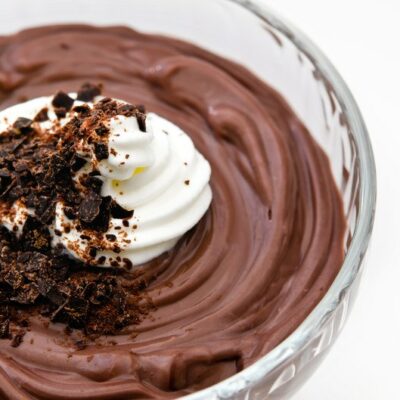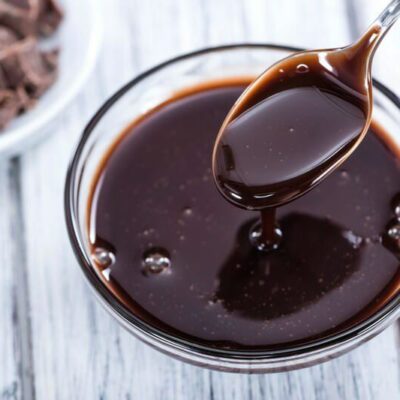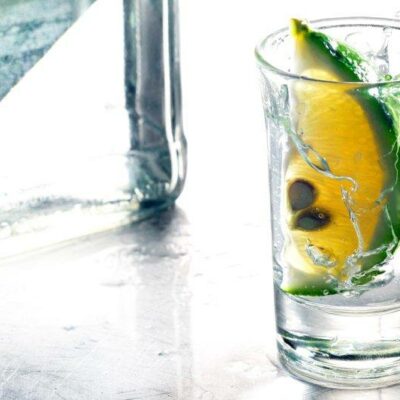
Have you ever opened a beer to find that it doesn’t taste quite right? Perhaps it’s flat, sour, or a touch skunky. You might imagine that you simply got a bad batch, but can beer go bad?
The short answer is both yes and no. Most beers have an expiry date, after which the quality tends to decrease. Beer can also be affected by warmth and UV light. This means that poorly transported and stored beer loses its appealing flavor much faster than it should.
Still, there’s a distinction to be made. While beer expires and loses its appealing characteristics, it doesn’t actually spoil. Most beers are still safe to drink. Some people even enjoy them after their expiry date.
This means that the beer sitting at the back of your fridge can still be consumed, even months or years after its expiry date. Whether you want to drink it, well, that’s an entirely different story.
Can Beer Go Bad? How Does This Happen?

It isn’t so surprising that the quality of beer changes with time. After all, beer is a natural product. Processes like canning, bottling, and storing the beer carefully slow down changes and keep the beer as you want it, but nature will still take its course.
The main ways this can happen are oxidation, hop degradation, and a reaction to UV. All three of these reactions are irreversible, so there’s no way to bring your beer back to the flavor it had before. Instead, it’s best to do all you can to protect your beer.
Oxidation
Oxidation is a chemical reaction where the addition of oxygen leads to the loss of electrons. While oxidation is sometimes important, you don’t want too much of this happening in your beer.
Beer oxidation often happens because too much oxygen gets into the bottle (largely because bottle caps aren’t completely airtight). Higher temperatures can also speed up oxidation, making flavor changes much more likely in the summer months, especially if you’re storing beer at room temperature.
Oxidation can also occur during the brewing process. Large scale breweries have processes to avoid this, but smaller craft breweries and home brewers might sometimes accidentally oxidize their brew.
Even without these factors, there will be some natural oxidation over time. That’s because it’s all but impossible to completely exclude oxygen when packaging beer. A small amount will always get in there, which then oxidizes the beer over time.
Beer that’s been oxidized often has a flat and somewhat stale taste. It’s sometimes even compared to cardboard, which isn’t what you want at all.
Hop Degradation
Even without oxidation, hop characteristics naturally degrade over time. As a result, the aroma, flavor, and bitterness from hops decrease as the beer ages.
The speed and effect of this degradation are influenced by several factors, including oxygen, light, and heat. This is partly why storing your beer in the fridge helps it to last longer.
The effect also varies between beers. After all, products vary in the amount and type of hops they use, as well as their balance of other ingredients.
Beer And Light (Skunked Beer)

Have you heard the term skunked beer before? This can also be called light struck beer and is a common issue.
Skunked beer lives up to its name, as it has a distinct unappealing flavor that’s much like a skunk’s spray. This happens because molecules in hops break down in UV light to produce the 3-MBT compound (3-methyl-2-butene-1-thiol).
Skunking is most common in beer with clear or light colored bottles, as these experience the most UV exposure. You’ll notice the effect very quickly if you’re serving bottled beer outside on a sunny day.
Skunked Beer Myths
Temperature Changes Cause Skunking
Most of the time, no. Even bringing beer from cold to warm to cold repeatedly won’t make it skunky. The flavor is specifically related to a reaction in UV light. Temperature doesn’t have enough of an effect on its own.
That said, research has shown that 3-MBT can be produced through a thermal reaction, even when no UV light is present. This is a much slower reaction, so it’s unlikely to create a skunky flavor in your beer.
Beers Skunk Equally
The skunking reaction is directly related to hops in beer. Because of this, the effect is strongest and happens most often in hop-heavy beers, like IPAs.
Beers with minimal hops often only have a mild skunk flavor or may not develop it at all.
A Lot Of UV Light Is Needed
The skunky 3-MBT compound develops fast.
How fast depends on who you ask. Some people say it just takes a few minutes, others 10 to 15, while still others say you need at least half an hour. Either way, it’s not a ton of time.
The amount of time also varies based on the bottle itself. Beers in clear bottles will become skunky very fast indeed. The time is longer for green bottles and even longer for dark amber bottles. So, if you’re going to drink bottled beer, look for products with dark bottles.
We’re not just talking about UV from the sun either. Some LED lights and fluorescent lights produce and emit UV as well. This light may have the same effect as the sun on your beer, especially after prolonged exposure.
Skunked Beer Is Undrinkable
Skunked beer is still drinkable and won’t cause you any harm. Your nose will even adjust to the scent if you spend a few minutes smelling the beer. Or, you can use a wedge of lemon or lime to mask the skunkiness and still enjoy the beer.
Such approaches are useful in the summer, especially if you’re drinking beers in the sun out of clear bottles. Still, it’s best to keep your beer out of the sunlight if you possibly can.
You’ve probably even had skunked beer yourself, especially if you’ve ever had a Corona. Because Coronas are sold in clear bottles, the beer skunks very quickly. Some theories even suggest that the company started intentionally skunking their beer cans, so that the flavor profile matches the bottles.
How Long Does It Take For Beer To Go Bad?

Beer generally has an expiry date between 3 months and 9 months from when it was bottled. This is your starting point, but you’re not bound by this expiry date.
Many products will be good 6 months or more after the printed date. That’s at room temperature. If you keep the beer in the fridge, you might get an extra year or two out of it.
Things quickly change once you’ve opened the beer. You’ll typically just get a day or possibly two from the beer before it tastes no good.
However, those times assume you’re being careful with your beer. For example, if clear bottles of beer are in the sunlight for even 15 minutes, you risk the beer turning skunky (regardless of its expiry date). Similarly, beer keep out of the fridge in a warm environment is likely to oxidize much more quickly.
How Do You Know If Beer Has Gone Bad?
There are plenty of indications that beer has gone bad.
Smell is one of these. Light stuck beer has a distinct stunk-like aroma, while degraded beer has less aroma than it should.
The flavor will often change too. Your beer might end up tasting stale or have some strong sour notes that weren’t there before.
The appearance of the bottle is relevant too. Expired beer may have a haziness that wasn’t present when it was fresh. In fact, any visual changes are a sure sign that your beer isn’t as good as it was.
Finally, there are some indications when you open the beer. You might notice a popping sound when the beer is first opened, along with less head when you pour the beer. Here too, the biggest indication is change. Look for any features that are different or unexpected about your beer.
How To Make Your Beer Last Longer
No matter what you do, beer will eventually expire. However, some approaches can help protect your beer and make it last much longer.
Keep Your Beer In The Fridge
Cool temperatures slow changes to your beer, making the fridge one of the best places to store it. Keeping the beer here will also protect it from UV exposure.
Watch Light Exposure
This one is crucial, particularly for bottled beer. Even a little UV light can mess up the flavor of your beer, making it much less appealing.
Watch out for this one in the summer, especially if you’re drinking beer outside. You might need to keep your beer in a cooler or perhaps switch to drinking out of cans rather than bottles.
Using a stainless steel growler or perhaps a ceramic one can help with this issue too.
Check The Bottling And Expiry Date
Recently bottled beer will naturally last longer than beer that has already been sitting around the store for months. So, it’s important to keep an eye on the freshness and bottling dates of your beer.
Companies vary in how they write freshness dates and where these are located on the beer. Sometimes you don’t even get a date at all, but a six-digit code or a combination of letters and numbers.
Draft Mag offers a fantastic guide on these different approaches and how you can determine the freshness of your beer. Once you understand the system for your favorite beer, you should be able to easily determine how fresh it is.
Be Aware Of Previous Storage

Your beer will have been through various production, transportation, and storage steps before you purchase it. Those steps could have involved exposure to light or dramatic temperature changes, both of which can affect your beer.
Anything you can learn about those steps helps you ensure you’re getting the most out of your beer. Pay particular attention to beer in light colored bottles. These are sometimes left in the sun during loading and unloading or may even be stored in full exposure to the sun (gas stations are notorious for this issue).
If unsure, try asking what steps are taken to protect the beer from light exposure. Companies with good processes in place should give you beer that lasts the longest.
Focus On Canned Beer Or Kegs
The issue with light exposure and skunky beer mostly happens with bottled beer. Canned beer and kegs are naturally protected from the light, so they shouldn’t go skunky.
After all, it’s tough to completely control the sunlight exposure of your beer bottles. Why not skip the stress and just rely on cans?
Can You Age Beer?
Some types of beer can be aged. In fact, aging beer is a hobby all of its own.
Aging beer allows some exciting flavors to develop in the beer, ones that aren’t present when it is young. However, the type of beer makes a dramatic difference here.
Most of the time, you’re looking for dark malted beers with a decent ABV. These have the best flavors when they are aged. Other dark beers are worth experimenting with too.
Light beers are a different story and most don’t age well at all. Hop forward beers shouldn’t be aged either, as the hop aromas decrease over time, rather than becoming stronger.
Of course, aging beer is somewhat of an art. The process could easily ruin your beer rather than improving it, even if you choose the type of beer carefully.
Ways To Use Expired Beer
Sure, expired beer isn’t typically dangerous, but that doesn’t mean you should drink it. Why not try one of these approaches instead? They allow you to use the beer, rather than simply throwing it out.
Clean Your Carpet
Oddly, beer really can help with stains on your carpet, due to the combination of alcohol, carbon dioxide, and enzymes. To begin with, test a small area of your carpet to make sure the beer won’t make things worse.
Then, you should blot the stain to remove as much excess as possible. Once the excess has been removed, pour a little beer on the stain and allow it to sit for a few minutes. You can then dab the stain, rinse the area, and do the same again if needed.
Don’t get me wrong. Beer isn’t a miracle solution and certainly won’t fix all stains. Still, it’s a viable option that’s worth experimenting with.
Cooking
Beer can be used in some recipes, including alcohol cake infusions and beer batter fries. You would normally use fresh beer in such recipes, but expired beer is viable too.
You’ll need to choose the recipe wisely though. If the flavor of the beer is strong in the final dish, it’s best to stick with fresh beer. Otherwise, you risk adding an ‘off’ flavor into your meal. Marinades and beer batter fish are particularly good options to begin with. Some people even cook their brats in beer to enhance their flavor.
Wash Your Hair
Some people actually wash their hair with beer. The idea might be helpful in some situations, especially if you decarbonate the beer first. You could also experiment with a mixture of beer and apple cider vinegar. That combination is thought to add glossiness to your hair.
Final Thoughts

While beer doesn’t spoil like cheese, bread, or other fresh foods, its flavor changes over time. Exposure to heat and light worsens matters, quickly giving you a beer that tastes awful.
Focusing on canned beer or kegs rather than bottles helps matters, as this removes the issue of light exposure. But, even if you keep cans of beer unopened in a cool environment, they will eventually expire.
You can still drink this expired beer if you really want to, but why do so? Most beers are meant to be consumed fresh and taste much better that way.














 The Best Tomato Varieties For Your Home Garden
The Best Tomato Varieties For Your Home Garden
Leave a Reply